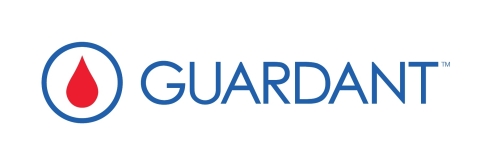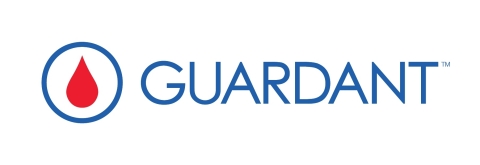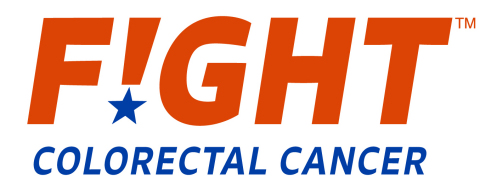Fight Colorectal Cancer and Guardant Health Join Forces to Recognize Excellence in Overcoming Challenges to Colorectal Cancer Screening During Pandemic
Fight Colorectal Cancer and Guardant Health Join Forces to Recognize Excellence in Overcoming Challenges to Colorectal Cancer Screening During Pandemic
Selected Recipients of the New “Back to Screening Award for Research Advocacy Excellence” will be Honored at Fight Colorectal Cancer’s “Path to a Cure” Event in December 2021
SPRINGFIELD, Mo. & REDWOOD CITY, Calif.--(BUSINESS WIRE)--Fight Colorectal Cancer (Fight CRC), the nation's leading colorectal cancer (CRC) patient advocacy organization, and Guardant Health, Inc. (Nasdaq: GH), a leader in precision oncology, will be recognizing clinical researchers and advocates who have demonstrated exceptional leadership during the pandemic in getting people back to routine colorectal cancer screening.
The award, called “Back to Screening Award for Research Advocacy Excellence,” will honor key contributions made by Fight CRC research advocates, as well as Principal Investigators participating in Guardant Health’s ECLIPSE trial, a clinical study evaluating the use of a blood test to screen for colorectal cancer. Selected recipients of the award will be honored at Fight CRC’s “Path to a Cure” event in December 2021. Notably, this year’s event will convene a group of research and advocacy experts who will be tasked with mapping out a path leading to a cure for colorectal cancer. The framework will be shared with the National Cancer Institute (NCI) and National Institutes of Health (NIH) to request action to help achieve this goal.
“The COVID-19 pandemic forced colorectal cancer screening to a standstill in some communities. The data shows drastic declines in 2020, compared to the same timepoints in prior pre-pandemic years,” said Anjee Davis, President of Fight CRC. “Despite these challenges, herculean efforts were made by Fight CRC research advocates and Principal Investigators participating in the ECLIPSE trial to continue to move the needle forward to improve colorectal cancer screening rates and, ultimately, save lives. Fight CRC and Guardant Health have been focused on our shared goal of getting people back to routine cancer screening after the pandemic.”
The ECLIPSE trial, a 10,000-plus patient study, is currently underway to evaluate the performance of Guardant Health’s blood test to detect colorectal cancer in an average-risk adult population.1 If successful, Guardant Health expects data from the trial will support a premarket approval (PMA) submission to the FDA. Despite the incredible pressure that the pandemic put on enrolling patients into the study, which requires patients to consent to undergo an invasive, inpatient colonoscopy procedure, the trial is expected to complete enrollment by the end of 2021. The test is intended to offer a non-invasive, patient-friendly blood testing option that could bridge the gap to the Centers of Disease Control’s (CDC) target compliance goal of 80 percent.2,3
Today, it is estimated that only 66% of adults 50 years and older3 are screened despite compelling evidence that routine cancer screening can reduce colorectal cancer mortality, the second leading cause of cancer death.3 The problem is expected to get worse. The Journal of the American Medical Association recently predicted that COVID-19–related reductions in care utilization may result in an estimated 1.2 to 2 million fewer colorectal cancer screenings between 2020 and 2023.4
Colorectal cancer is on the rise for younger adults too. The U.S. Preventative Services Task Force (USPSTF) recently lowered the recommended age to start screening from 50 to 45.5 This increases the pool of people who need to be screened by an additional 21 million Americans aged 45 to 49.6 By 2030, it is expected that colorectal cancer will be the leading cause of cancer related death for those aged 20 to 49, making colorectal cancer screening increasingly a priority for all Americans.7
“Given what we have learned during the pandemic about its detrimental impact on cancer screening and healthcare disparities among underserved communities, it has become abundantly clear that a non-invasive, patient-friendly blood test to routinely screen for colorectal cancer is desperately needed,” said Helmy Eltoukhy, Guardant Health CEO. “We look forward to recognizing the exceptional performance of the institutions participating in our ECLIPSE trial who have worked tirelessly to conclude this trial so that one day soon we can offer patients a more accessible solution for routine colorectal cancer screening. We are proud to stand together with Fight CRC to not only honor these investigators, but to also recognize the incredible dedication of the Fight CRC advocates for their unwavering commitment to CRC screening during these difficult times.”
To learn more about CRC screening and the importance of raising awareness of colorectal cancer screening, visit FightCRC.org. To learn more about the ECLIPSE trial, visit guardanthealth.com/eclipse/.
About Fight Colorectal Cancer
Fight Colorectal Cancer (Fight CRC) is a leading patient-empowerment and advocacy organization in the United States, providing balanced and objective information on colon and rectal cancer research, treatment, and policy. We are relentless champions of hope, focused on funding promising, high-impact research endeavors while equipping advocates to influence legislation and policy for the collective good.
About Guardant Health
Guardant Health is a leading precision oncology company focused on helping conquer cancer globally through use of its proprietary tests, vast data sets and advanced analytics. The Guardant Health oncology platform leverages capabilities to drive commercial adoption, improve patient clinical outcomes and lower healthcare costs across all stages of the cancer care continuum. Guardant Health has commercially launched Guardant360®, Guardant360 CDx, Guardant360 TissueNext™, Guardant360 Response™, and GuardantOMNI® tests for advanced stage cancer patients, and Guardant Reveal™ for early-stage cancer patients. These tests fuel development of its LUNAR screening program, which aims to address the needs of asymptomatic individuals eligible for cancer screening.
References
- Guardant Health, Inc. October 2019. Evaluation of the ctDNA LUNAR Test in an Average Patient Screening Episode (ECLIPSE). Identifier NCT04136002. https://clinicaltrials.gov/ct2/show/NCT04136002
- Centers for Disease Control (CDC). Increasing Quality Colorectal Cancer Screening: An Action Guide for Working with Health Systems. https://www.cdc.gov/cancer/crccp/pdf/colorectalactionguide.pdf. Accessed online July 8, 2021.
- American Cancer Society: Colorectal Cancer Facts & Figures 2020-2022. Available at: https://www.cancer.org/content/dam/cancer-org/research/cancer-facts-and-statistics/colorectal-cancer-facts-and-figures/colorectal-cancer-facts-and-figures-2020-2022.pdf. Accessed online July 8, 2021.
- Issaka R, Taylor P, Baxi A, et al. Model-Based Estimation of Colorectal Cancer Screening and Outcomes During the COVID-19 Pandemic. JAMA Network. 2021; 4(4): e216454.
- Final Recommendation Statement: Colorectal Cancer Screening. US Preventive Services Task Force. https://www.uspreventiveservicestaskforce.org/uspstf/recommendation/colorectal-cancer-screening. Published May 18, 2021. Accessed online July 8, 2021.
- Liang P, Allison J, Ladabaum U, Martinez M, et al. Potential Intended and Unintended Consequences of Recommending Initiation of Colorectal Cancer Screening at Age 45 Years. Gastroenterology. Oct 2018. Volume 155, Issue 4, Pages 950-954. doi:10.1053/j.gastro.2018.08.019.
- Rahib L, Wehner MR, Matrisian LM, Nead KT, et al. Estimated Projection of US Cancer Incidence and Death to 2040. JAMA Network. 2021;4(4):e214708. doi:10.1001/jamanetworkopen.2021.4708
Contacts
Fight CRC
Elizabeth Jordan and Danielle Ripley-Burgess
media@fightcrc.org
(636) 544-7113
Guardant Health
Anna Czene
press@guardanthealth.com
Julie Johnson
julie.johnson@uncappedcommunications.com


